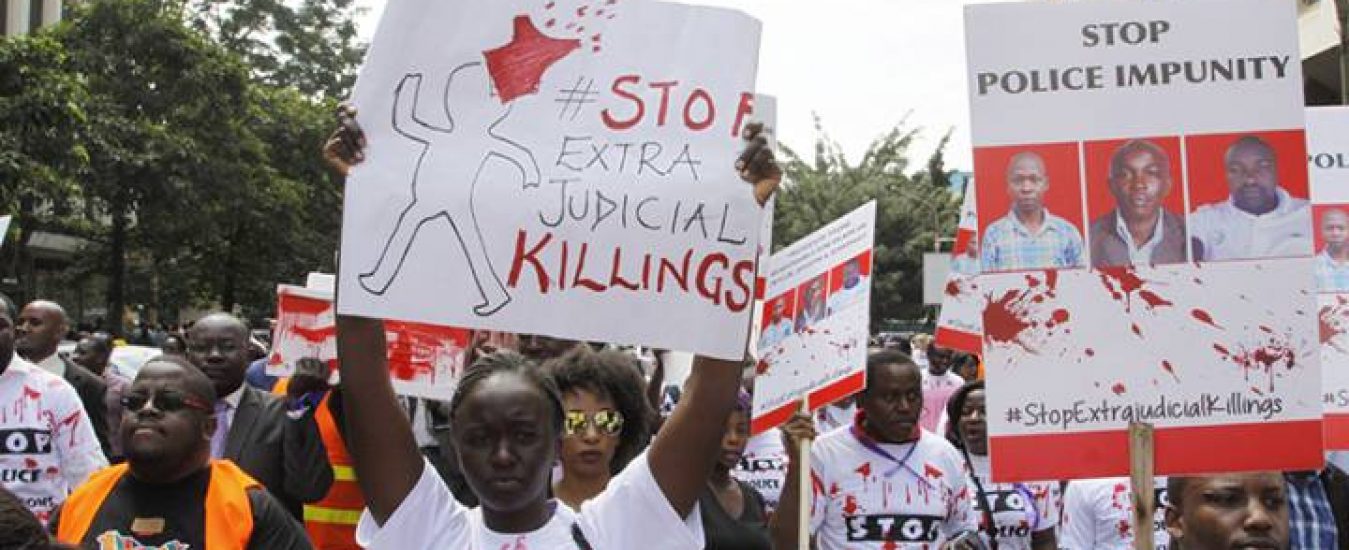By Sarah Nyakio
Extrajudicial killings, also known as extrajudicial executions (EJEs), are killings carried out by state officials or individuals acting with the tacit or explicit approval of the state outside the judicial process. In Kenya, extrajudicial killings have become a common occurrence, particularly targeting young men from informal settlements. These killings are carried out by police officers who are supposed to protect citizens and maintain law and order. The effects of these killings on society and the criminal justice system are far-reaching and devastating.
The police in Kenya have been accused of extrajudicial killings, torture, and other human rights abuses for many years. According to IMLU’s report, police were involved in 255 cases of police violence and brutality. The majority of the victims were young men from informal settlements.
EJEs are often carried out during police operations to fight crime or as part of anti-terrorism efforts. The police usually justify the killings by claiming that the victims were criminals or terrorists who resisted arrest or were in possession of illegal weapons. However, many of the victims are later found to be innocent.
The effects of extrajudicial killings on society are devastating. Families and communities are left traumatized and struggling to come to terms with the loss of their loved ones. The killings have also created a culture of fear and mistrust of the police, making it difficult for citizens to report crimes or seek protection from the police. This has led to a breakdown in the relationship between the police and the community, making it harder to fight crime and maintain law and order.
The criminal justice system in Kenya has also been affected by extrajudicial killings. The killings have undermined the rule of law and eroded public confidence in the justice system. The police are supposed to uphold the law and protect citizens, but when they carry out extrajudicial killings, they become part of the problem rather than the solution. The lack of accountability for these killings also sends a message that police officers can act with impunity and without fear of punishment.
To address the problem of extrajudicial killings in Kenya, there needs to be a concerted effort by the government, civil society, and the police themselves. The government needs to take concrete steps to ensure that the police are held accountable for their actions and that victims and their families receive justice. The police themselves need to be reformed to prioritize community policing and develop better relationships with the communities they serve. Finally, civil society needs to continue to raise awareness of the issue and advocate for change.
In conclusion, extrajudicial killings in Kenya are a serious human rights issue that has far-reaching effects on society and the criminal justice system. It is important for all stakeholders to work together to end these killings and restore trust between the police and the community.

